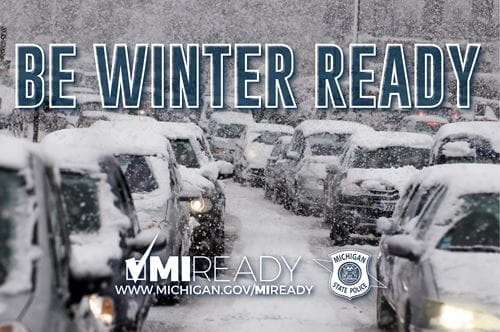The web Browser you are currently using is unsupported, and some features of this site may not work as intended. Please update to a modern browser such as Chrome, Firefox or Edge to experience all features Michigan.gov has to offer.
Portable Generator Safety

Portable generators are useful when temporary or remote electric power is needed, but they can be hazardous if not used properly. The most common dangers associated with portable generators are carbon monoxide (CO) poisoning, electrical shock or electrocution and fires.
There are simple steps you can take to prevent these hazards from occurring and resulting in the loss of life and/or property damage from improper use of portable generators.
To avoid carbon monoxide hazards:
- Always use generators outdoors and away from doors, windows, and vents.
- NEVER use generators in homes, garages, basements, crawl spaces, or other enclosed or partially enclosed areas, even with ventilation.
- Follow manufacturer’s instructions for use.
- Install battery-operated or plug-in (with battery backup) carbon monoxide (CO) alarms in your home, following manufacturer’s instructions.
- Test CO alarms often and replace batteries when needed.
- NEVER cook inside or heat your house with a gas, wood or charcoal grill.
- PAY attention to flu-like symptoms, especially if more than one person has them. Headache, dizziness, confusion, fatigue and nausea are all common symptoms of carbon monoxide exposure.
- MOVE outside to fresh air immediately if a CO leak is suspected. Go to the emergency room or call 911 if you suspect carbon monoxide poisoning.
To avoid generator electrical hazards:
- Keep the generator dry. Operate on a dry surface under an open, canopy-like structure.
- Dry your hands before touching the generator.
- Plug appliances directly into generator or use a heavy-duty outdoor-rated extension cord. Make sure entire extension cord is free of cuts or tears and the plug has all three prongs, especially a grounding pin.
- NEVER plug the generator into a wall outlet. This practice, known as back-feeding, can cause an electrocution risk to utility workers and others served by the same utility transformer.
- If it’s necessary to connect the generator to house wiring in order to power appliances, have a qualified electrician install appropriate equipment. Or, your utility company may be able to install an appropriate transfer switch
To Avoid Fire Hazards:
- Before refueling the generator, turn it off and let it cool. Fuel spilled on hot engine parts could ignite. Always store fuel outside of living areas in properly labeled, non-glass containers. Store fuel away from any fuel-burning appliance.
Sources:
https://www.nfpa.org/downloadable-resources/safety-tip-sheets/generator-safety-tip-sheet